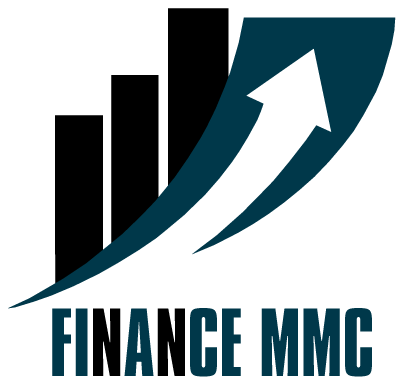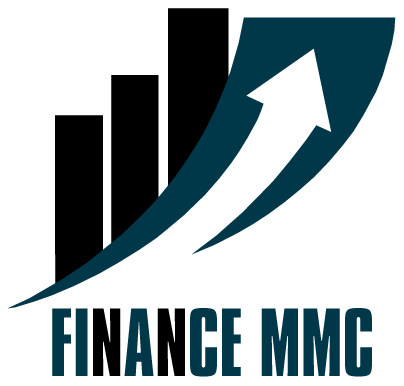Learn everything about Chicago taxes for doctors, from filing requirements to deductions. Get expert guidance on managing your medical practice’s tax obligations effectively
If you’re a doctor in Chicago, you know taxes can be tough. This guide will help you understand Chicago Taxes for Doctors. It’s designed to help you save money and make the most of your finances.
Key Takeaways
- Chicago doctors face complex tax challenges due to their unique financial situations, making professional tax guidance essential.
- Specialized tax planning and preparation services can help healthcare providers maximize deductions and ensure compliant filings with the IRS.
- Keeping detailed records of business expenses, medical costs, and financial information throughout the year can streamline the tax filing process.
- Understanding available tax-advantaged retirement and investment options can significantly impact your long-term financial well-being.
- Consulting with experienced tax professionals who specialize in serving the medical community can provide valuable insights and strategies.
Understanding Tax Filing Options for Chicago Medical Professionals
As a Chicago-based medical professional, dealing with taxes can be tough. You might choose to file yourself or get help from a tax consultant. Knowing the good and bad of each choice is key to following the rules and saving on taxes.
Self-Filing vs Professional Tax Services
Some doctors like the ease and savings of filing their own taxes. But, the complex rules and special medical deductions often need a tax pro. Chicago medical tax consultants can find important deductions for you, like for medical gear, travel, and professional groups.
Benefits of Specialized Medical Tax Preparation
Getting help from a tax expert who knows tax strategies for chicago doctors has many perks. They can guide you all year on how to lower your taxes. They also help with financial planning, like retirement and investments, tailored just for you.
Key Filing Deadlines for Illinois Physicians
It’s important to remember key tax deadlines for tax preparation for chicago doctors. This includes quarterly payments and yearly federal and state returns. Missing these can lead to penalties and interest, eating into your savings.
By knowing your tax filing options and using chicago medical tax consultants, you can make sure your taxes are done right. This lets you focus on giving great care to your patients.
Chicago Taxes for Doctors: Comprehensive Planning Strategies
Chicago doctors need to plan their taxes all year to save money and grow their wealth. They can do this by making the most of retirement plans, choosing smart investments, and timing their income and expenses well. It’s also important to think about how taxes affect their future and retirement plans.
The Buy Borrow Die (BBD) strategy is a great way for doctors to save on taxes. It involves buying assets, like real estate, and using them to get loans. This way, doctors can delay paying capital gains and get tax breaks on loan interest.
The 1031 Exchange is another smart move for doctors. It lets them avoid paying capital gains tax when they sell and buy new investment properties. This helps doctors grow their real estate while keeping taxes low.
To get the most out of these strategies, doctors should plan early and choose reliable partners. They also need a solid estate plan. Working with a tax expert who knows the Chicago medical community can help doctors use all tax-saving options.
| Key Advantages of Buy Borrow Die Strategy | Potential Risks |
|---|---|
|
|
High-net-worth individuals, like Chicago doctors, need to plan their taxes carefully. They face complex tax laws that affect income, business, employer, and estate/gift taxes. Good planning means managing income, using tax breaks, and maximizing deductions and credits.
Doctors can save on taxes and reach their financial goals by working with tax experts. These experts know the Chicago medical community and can help doctors plan their taxes all year.
Essential Tax Deductions for Chicago Healthcare Providers
If you’re a healthcare provider in Chicago, you can lower your taxes. You can deduct many expenses, like professional memberships and medical gear. You can also deduct travel and education costs.
Professional Organization Memberships
Membership fees in medical groups, like the AMA, are tax-deductible. These groups offer resources, networking, and support for chicago medical professional taxes.
Medical Equipment and Supplies
You can deduct the cost of medical tools and supplies. This includes stethoscopes, diagnostic tools, and PPE. You can deduct up to $1,080,000 under Section 179 of the tax code.
Travel and Educational Expenses
Travel for work, like conferences, is tax-deductible. This includes airfare, hotel, and meals. You can also deduct textbooks and online courses that improve your skills.
To get the most from your tax deductions for chicago physicians, keep good records. A tax expert in chicago medical professional taxes can help you claim everything you’re owed.
Retirement Planning and Tax-Advantaged Investment Options
As a Chicago-based physician, planning for retirement is key. There are many tax-advantaged investment options to help you save more and pay less in taxes.
The 401(k) plan is a top choice for doctors. It lets you put in pre-tax dollars, so your money grows without taxes until you retire. The 403(b) plan is similar but for doctors in non-profit jobs and hospitals.
Adding an Individual Retirement Account (IRA) to your 401(k) or 403(b) can boost your savings. Traditional IRAs grow tax-free, while Roth IRAs offer tax-free withdrawals. This makes them great for Chicago doctors with high incomes.
Self-employed doctors might find a SEP IRA useful. It lets you contribute more than traditional IRAs. Mixing different accounts, like 401(k)s, 403(b)s, and Roth IRAs, can help you save more and pay less in taxes.
Understanding retirement accounts and tax strategies is vital for physician tax planning in Chicago. By matching your accounts to your financial goals, you can build a secure future. This way, you can enjoy your retirement years fully.
| Retirement Account | Contribution Limits (2023) | Tax Treatment |
|---|---|---|
| 401(k) Plan | $22,500 ($30,000 if age 50+) | Pre-tax contributions, tax-deferred growth |
| 403(b) Plan | $22,500 ($30,000 if age 50+) | Pre-tax contributions, tax-deferred growth |
| Traditional IRA | $6,500 ($7,500 if age 50+) | Potential tax deductions, tax-deferred growth |
| Roth IRA | $6,500 ($7,500 if age 50+) | No tax deduction, tax-free growth and withdrawals |
| SEP-IRA | 25% of net self-employment income, up to $66,000 | Tax-deductible contributions, tax-deferred growth |
Remember, planning for retirement and using tax-advantaged options are key for chicago doctor income tax savings. Talk to a financial advisor to make a plan that fits your needs and goals.

Managing Student Loan Debt and Tax Implications
If you’re a Chicago physician, you might have a lot of student loan debt. It’s important to know how taxes affect this debt. We’ll look at student loan interest deductions, loan repayment programs, and tax benefits for medical education expenses in Illinois.
Student Loan Interest Deductions
The student loan interest deduction lets you subtract interest from your taxable income. But, it starts to decrease if your adjusted gross income (AGI) is over $70,000 for singles or $140,000 for couples. It goes away when your AGI hits $85,000 for singles or $170,000 for couples.
Loan Repayment Programs for Illinois Physicians
Illinois physicians can also get help with loan repayment. Programs like the National Health Service Corps and state initiatives offer financial aid. This can lower your taxable income.
Tax Benefits for Medical Education Expenses
As a healthcare provider, you might get tax breaks for medical education expenses. This includes CME credits and advanced certifications. Using these benefits can help with chicago taxes for doctors and save you money.
Understanding student loan tax implications and using illinois physician tax guide resources can help. This way, you can manage your student loan debt better. It’s key to your financial health as a doctor in Chicago.
Private Practice Tax Considerations in Chicago
As a private practice physician in Chicago, you have unique tax needs. You must plan carefully for self-employment taxes, business deductions, and choosing the right entity structure. The local and state regulations can be complex and overwhelming.
Choosing the right business structure is crucial. You might choose a sole proprietorship, LLC, or S-corporation. Each has different tax implications that affect your personal and business taxes. A tax advisor familiar with medical practices can guide you to the best choice and ensure you follow the rules.
It’s also key to understand how your practice’s expenses are taxed. You can deduct costs like medical equipment, supplies, professional development, and travel. A tax advisor can help you find and use these deductions to lower your taxes.
| Tax Consideration | Potential Benefits | Key Strategies |
|---|---|---|
| Business Structure |
|
|
| Business Deductions |
|
|
| Self-Employment Taxes |
|
|
Working with a tax advisor who knows chicago medical professional taxes is crucial. They can help your practice save on taxes and grow. This approach can reduce your taxes, improve your cash flow, and help your practice succeed in the long run.
“Navigating the complex tax landscape for private practice physicians requires a deep understanding of the local and state regulations, as well as a keen eye for maximizing deductions and identifying tax-saving strategies. A specialized tax advisor can be an invaluable asset in this process.” – [Tax Advisor Name], tax advisors for chicago medical professionals

Income Tax Brackets and Planning for Chicago Physicians
As a Chicago physician, you face both federal and Illinois state taxes. It’s key to know the tax brackets and how they affect your income. This knowledge is vital for smart tax planning.
State and Federal Tax Obligations
In Illinois, everyone pays a flat 4.95 percent income tax. But, the federal tax system has different rates for different income levels. By managing your income, you can lower your taxes.
Quarterly Tax Payment Requirements
Chicago doctors must make quarterly tax payments to avoid penalties. This ensures you pay your taxes on time, not just at the end of the year. Planning for these payments helps keep your finances stable and avoids surprises.
Tax Credits Available to Medical Professionals
Look into tax credits for Chicago medical professionals, like the Small Business Health Care Tax Credit. These credits can lessen your tax burden. Keep up with new tax incentives to benefit from them.
By understanding tax brackets, planning for quarterly payments, and using tax credits, Chicago doctors can manage their taxes better. This can lead to a lower overall tax burden.
“Careful tax planning can make a significant difference in the financial well-being of Chicago physicians.”
Documentation and Record-Keeping Requirements
As a chicago medical tax consultants, keeping good records is key for Chicago doctors. It helps them get the most deductions and follow tax laws. Keeping track of income, expenses, donations, and investments all year is important. Using digital tools or a professional bookkeeper can make this easier.
Having accurate records is vital for supporting your deductions and credits. The Illinois Department of Revenue (IDOR) says not having records can lead to a $3,000 penalty. Also, a 15% penalty is added for unpaid taxes during an audit. This penalty goes up to 20% if not paid within 30 days after the audit results notice.
To deal with tax preparation for chicago doctors better, start organizing your records early. Also, keep up with new tax laws and rules. With careful record-keeping, you can make tax filing easier and reduce your tax bill.
| Key Tax Deadlines for Illinois Physicians | Requirement |
|---|---|
| April 15th | Individual income tax return (Form 1040) due |
| Quarterly Estimated Tax Payments | Due on April 15th, June 15th, September 15th, and January 15th |
| Business Tax Returns | Due on the 15th day of the 4th month following the end of the tax year |
Keeping your records in order is essential for chicago medical tax consultants and tax preparation for chicago doctors. By staying organized and knowing the important filing dates, you can have a worry-free tax season. This way, you can also get the most out of your deductions.
Conclusion
For doctors in Chicago, chicago taxes for doctors planning is key. It helps them manage their finances well and reach their long-term goals. By knowing their tax options, doctors can cut down on taxes and grow their wealth.
It’s wise to team up with physician tax planning chicago experts. These include tax accountants and financial advisors. They can craft a tax plan that fits your needs. They guide you through tax rules and find ways to save money.
Good tax planning is vital for doctors in Chicago. It keeps your finances strong. By being informed and proactive, doctors can improve their tax situation. This leads to more earnings and a better financial future for themselves and their families.


